A seller’s Guide
My premium seller Service Bundle
I offer all my seller clients the additional services of 3 other professionals at no charge:
Seller Representation
The representation agreement outlines the relationship between you and agent by establishing duties, responsibilities, compensation policies, and terms. These are bilateral contracts, meaning promises are being exchanged by both parties (Client & Agent). These agreements and their parameters can differ depending on the agent you are working with and the types of services you are seeking.
An Agent’s Responsibilities
A Seller’s responsibilities
Pre-listing
Before your house goes active on the market it is important to make sure it is ready. First thing is the prelisting inspection and the staging consultation. Then, once we make sure your home is picture ready, we will bring in the professional photographer.
What’s the difference between a Comparative market analysis and zillow’s zestimate?
To help you establish a competitive listing price the real estate agent will prepare a Comparative Market Analysis (CMA). This is where they find similar properties within your area that have sold and cross compare them with your property to establish an estimate of value. As you may already know, this type of analysis differs from the now popular “Zestimate” or other Automated Valuation Models and can be more precise when performed correctly. A real estate agent’s CMA typically takes into account key insight such as the condition of the property, level of renovation, neighborhood subtleties , and of course relevant sold prices of comparable homes that most Automated Valuation Models omit when computing value through an automated algorithm.
a pre-Listing Inspection?
Buyers will likely conduct an inspection once they go under contract and if they find anything unexpected they could demand repairs or back out of the transaction all together. To avoid these hiccups and prepare for a smooth transaction, it is best to have a prelisting inspection. This will strengthen your bargaining position and promote the most serious of offers. This will also give you a chance to amend any issues you’d like before you put your house on the market.
the staging consultation
A certified home staging designer will offer detailed insight into how you can optimize the appearance of your home to solicit the greatest offers. It is of great importance to have your home looking presentable the entire time it is on the market, but it is particularly vital to have it in tip top shape for the photographer when they come to capture the first impression.
Showings & Open House
Some key tips to making your home as welcoming as possible to buyers:
Offer & Negotiation
What is in a offer?
There are 5 main components of an offer:
What is your ideal offer & what do you want your agent to disclose?
It is important that your agent is aware of what type of offer/closing you are ideally looking for and if that is information you’d like to be shared with buyers when they are looking to submit a competitive offer. Questions like “What is important to the seller?”, “How soon are your sellers wanting to close?”, or “Have you received any other offers yet?” are some your agent could expect to receive and so it is a good idea for your them to know how you expect them to respond.
Closing
Before closing the house should be fully vacated and cleaned. Make sure to leave all fixtures, appliances, and personal property that where included in sale of the house. Here are some of the key items you should bring to the closing table:


